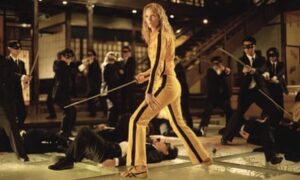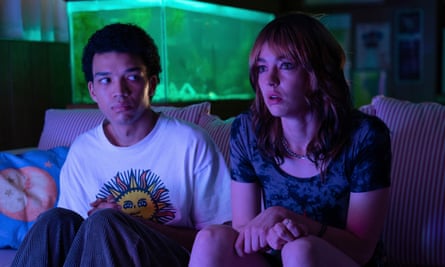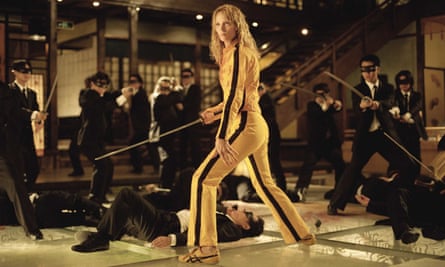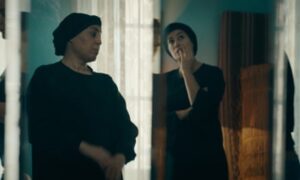In 2010, Kevin Younger opened an article in the Guardian by asking, “Do you recognize the faces but struggle to remember the names?” He then listed Britain’s top 10 lesser-known television character actors, including Georgina Hale. Describing her as a seductive, nasal-voiced, and charming actress, he noted her roles in provocative films and iconic television shows from the 1970s. Furthermore, he commented on her recent trend of playing wealthy and indulgent middle-aged characters.
While she primarily appeared on television, Hale, who passed away at 80, was a beloved actress of the bold filmmaker Ken Russell. He once described her as “an incredibly perceptive actress who can give you goosebumps.”
Georgina Hale delivered a standout performance as Alma, the wife of Austrian composer Gustav Mahler, in Russell’s 1974 fictionalized musical biopic “Mahler.” Critic Arthur Thirkell from the Daily Mirror praised Hale’s portrayal, noting that she brought energy and vitality to the film.
Gustav Mahler’s wife, Alma, who shares his passion for music, accompanies him on a train ride through Austria. Throughout the journey, flashbacks to significant moments in his life are interspersed. The suppression of Alma’s artistic expression is represented in the beginning of the story when Gustav envisions her struggling to break free from a translucent cocoon while rolling on rocks in the nude. Later, he dreams of his own death and funeral, with Alma leading the procession and later betraying him by stripping for a Nazi lover.
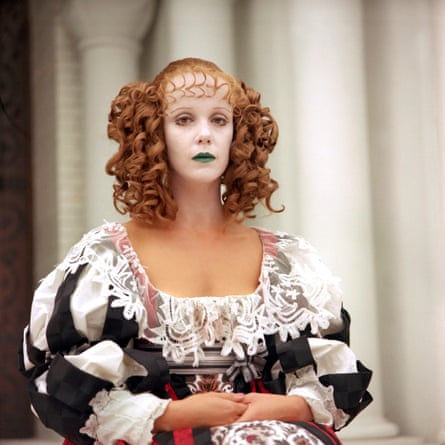
Hale was honored with a Bafta award for her impressive performance as a promising newcomer. Prior to this, she had roles in two of Russell’s 1971 films: The Devils, where she played a pregnant woman abandoned by a cheating Catholic priest who is accused of witchcraft (portrayed by Oliver Reed); and The Boy Friend, where she played Fay, a member of a fictional singing and dancing group in the director’s film adaptation of Sandy Wilson’s stage musical parody, alongside Twiggy.
She had uncredited cameo roles in two additional films directed by Russell, Lisztomania (1975) and Valentino (1977). She also portrayed the flirtatious mother of young Jim Hawkins, who called out numbers during bingo, in Russell’s unique adaptation of Treasure Island. This version was a TV movie released in 1995 and featured a female version of the infamous pirate, Long John Silver, known as Long Jane Silver.
Hale stayed occupied with various television roles, including playing convicted killer Ruth Ellis in the ITV show Ladykillers (1980) and portraying Moya Lexington, a combination of real-life aviator Amy Johnson and actress Sarah Churchill, in the BBC production of Terence Rattigan’s After the Dance (1992). According to Hale, her character is “drinking, doing drugs, and piloting her own plane.”
She gained a new following as the character Tabatha Bag in later episodes of the children’s series T-Bag on ITV. Her role began with “T-Bag and the Pearls of Wisdom” (1990) and ended with “Take Off With T-Bag” (1992). She replaced Elizabeth Estensen, who played Tabatha’s sister Tallulah Bag in the show’s first episode in 1985.
However, Hale’s opportunities for on-screen roles diminished over time. In 2002, she shared, “At the age of 51, my life took a turn.” She attempted to switch agents four years prior, but was rejected by 11 agencies. One agency even disclosed that they did not represent actresses over 45 because it was disheartening to communicate with them over the phone. Despite this setback, Hale continued to stay active in the theater industry while also working as a dishwasher in a restaurant for two years.
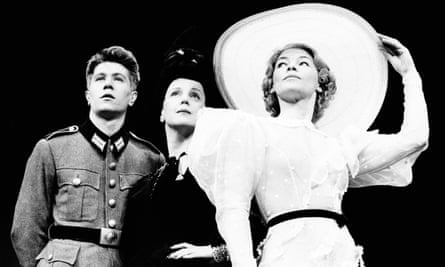
She was born in Ilford, Essex to Elsie and George Hole, who were the owners of a pub. She shared that she struggled with weight and shyness during her childhood and had to change schools frequently due to her parents’ job of managing different pubs. She believed that this constant moving affected her education negatively. In an interview with the Glasgow Herald in 2002, she mentioned that she had difficulty with writing, spelling, and reading. This led to feelings of shame and being labeled as the “dunce” of the class, often getting punished by being hit on the head.
At 18 years old, her mother passed away and her father followed four years after. When she was 19, she received tickets to see West Side Story, despite never having been to a theater before. She described the experience as mind-blowing.
While employed in London, she held a junior position at a hair salon in Knightsbridge. One day, she noticed an actors’ class in Chelsea that focused on the Stanislavski method of acting. This inspired her to attend Rada and she completed her training in 1965. Changing her stage name to Hale, she entered the industry by taking on minor roles at the Royal Shakespeare Company in both Stratford-upon-Avon and London’s Aldwych theatre from 1965-66.
In 1976, she made her first appearance on the West End stage in Chekhov’s play The Seagull at the Duke of York’s theatre. The Stage’s critic praised her performance as Nina, describing her as “tender, thoughtful, and charming.” She later starred as Bobbi Michele alongside Lee Montague in the British debut of Neil Simon’s play Last of the Red Hot Lovers at the Royal Exchange theatre in Manchester (1979). The production then moved to the Criterion theatre in London (1979-80).
Hale returned to the West End and received a nomination for an Olivier award for her role as Josie in Nell Dunn’s play Steaming (Comedy Theatre, 1981-82), which takes place in a Turkish bath. Despite appearing naked on film for Russell and wearing only an apron while cooking breakfast for Roger Daltrey in the 1980 crime movie McVicar, she stated to the Liverpool Daily Post that she does not mind having to undress for roles, as it is a reflection of real life, but she does not particularly enjoy it.
She went on to play Gwen in Simon Gray’s dark comedy Life Support at the Aldwych Theatre in 1997 and portrayed Greta Scacchi’s adoptive mother in Ferenc Molnar’s The Guardsman at the Albery (now Noel Coward) Theatre in 2000.
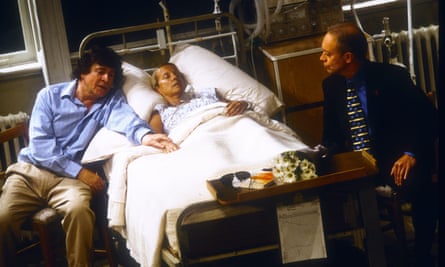
She gained recognition on TV as Adam Faith’s spouse, Jean Bird, in Budgie (1971-72), and also acted in various genres including drama, comedy, and soap operas. In the film Eagle in a Cage (1972), which centers on Napoleon’s captivity on St Helena, she portrayed Betsy Balcombe, the fallen emperor’s confidant.
In 1964, Hale and actor John Forgeham got divorced.
Georgina Hale, a performer, was born on August 4, 1943 and passed away on January 4, 2024.
Source: theguardian.com





